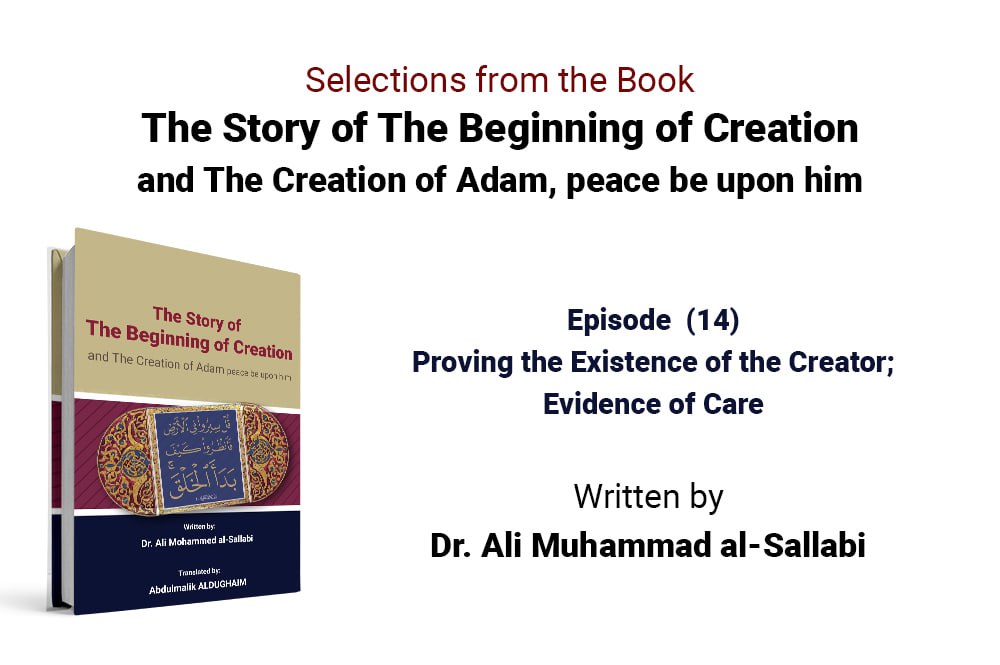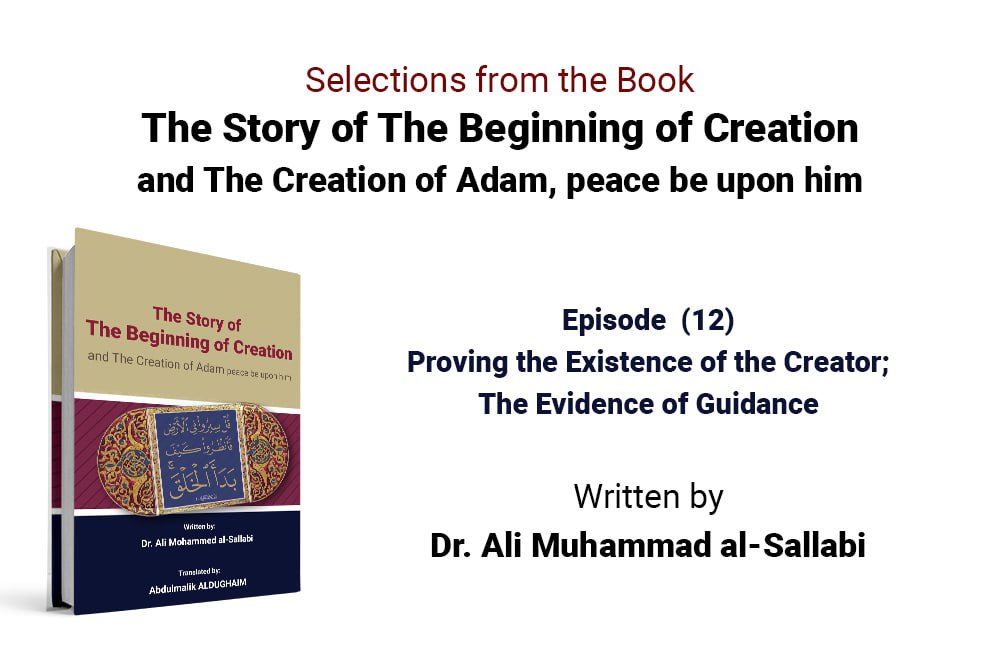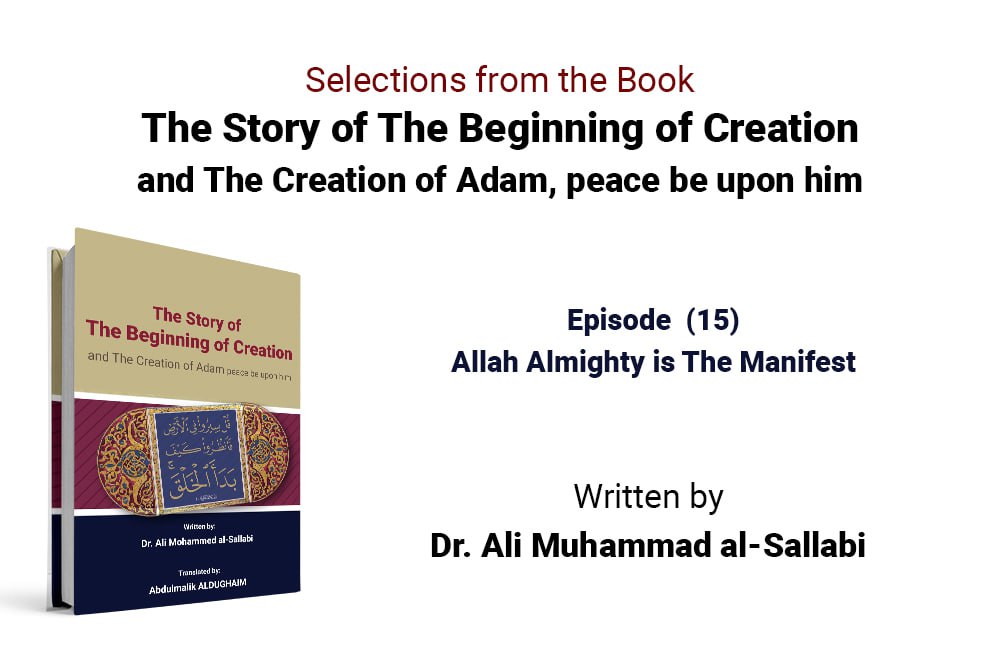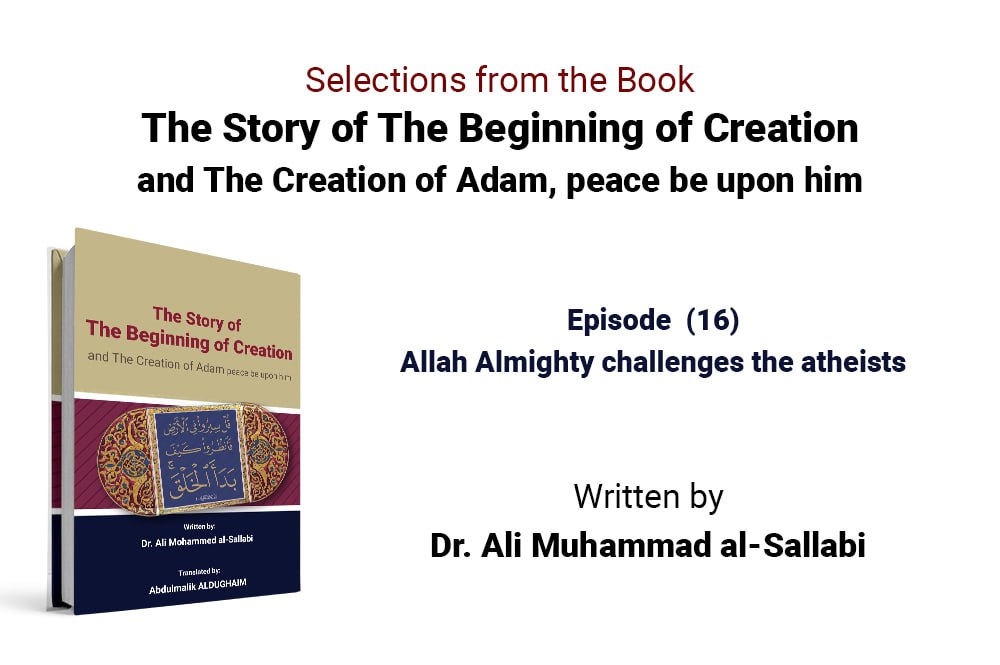Proving the Existence of the Creator; Evidence of Care
Selections from the Book The Story of The Beginning of Creation and The Creation of Adam, peace be upon him …
Written by Dr. Ali Muhammad al-Sallabi...
Episode (14)
Indeed, Allah Almighty is concerned with the world, and His care for the universe extends to all its parts. If the term "care" does not take us away from the context of purposeful connection and management, it colors the discussion of the evidence of connection to the existence of Allah with a different hue. When this evidence is colored with a gentle, compassionate hue, it is called the "evidence of care."
The evidence of care is one of the most beautiful proofs of the existence of Allah, who says:
- {Do you not see that Allah has made subject to you whatever is in the heavens and whatever is in the earth and amply bestowed upon you His favors, [both] apparent and unapparent? But of the people is he who disputes about Allah without knowledge or guidance or an enlightening Book [from Him].} [Luqman: 20].
We will mention—following the Quranic flow—statements from some sages that support this evidence in terms of purposeful connection or care. The heavenly care of Allah throughout the entire universe, which a person observes with their eyes seeing, ears hearing, mind thinking, and tongue speaking, negates coincidence. Purposeful connection eliminates coincidence, and the apparent intention in the order of the universe negates coincidence. Now let us discuss the structure and how it guides us to the Maker:
Take something simple in its construction; for example, the axe used by the farmer in his field or the pickaxe used by the worker in their task. If a person saw an axe with a smooth, rectangular piece of wood securely fixed with a piece of iron, would they think that this is the result of pure coincidence? If such a thought is unlikely in the case of something simple and easy, it is even less likely in the case of something complex, such as a clock or a radio.
Now imagine, as the late Dr. Muhammad Abdullah Daraz says: a house with a well-coordinated structure, luxurious foundations and furnishings, situated on a high mountain surrounded by a dense forest. Suppose a person came to this house and found no inhabitants or sign of a fire nearby. Would it cross his mind that the rocks of the mountain scattered and then reassembled into this magnificent palace, with its rooms, halls, and facilities? And that the trees of the forest cracked by themselves into planks and assembled into doors, beds, chairs, and tables, each taking its place? And that the threads of clothes, animal wool, and fur transformed by themselves into decorated fabrics, which then became carpets spread in the rooms and settled on the couches? And that the lamps somehow descended from everywhere and attached themselves to the ceiling in clusters and individually? Would you not conclude that this is a dream or a tale of fantasy, and that the person who thought of this is suffering from a confused mind?
So what do you think of a palace where the sky is its roof, the earth its foundation, the mountains its pillars, the plants its decoration, and the sun, moon, and stars its lamps? Is it in reason less significant than that small house? Is it not more deserving of attention to its Creator, The Alive, The Sustainer, who created, designed, and perfectly guided it?
The argument for the existence of Allah through the evidence of care is as old as humanity itself. Every person feels overwhelmed by Allah's blessings both within themselves and around them. Allah Almighty expresses a truth that every person notices with simple management: {And if you should count the favor [i.e., blessings] of Allah, you could not enumerate them.} [Ibrahim: 34]. He also says: {and amply bestowed upon you His favors, [both] apparent and unapparent?} [Luqman: 20].
With this very evidence, one of the sages argued against those who denied the existence of Allah; this was in the Greek era, and the denier was Aristotle Demos (not the famous Aristotle). The discussion between him and Socrates, the father of philosophy, went as follows:
Socrates said: “Do you admire the skill of people in crafts”?
He replied: “Yes, and named poets and artists whom he considered to be more skilled than others.”
Socrates then asked: “Which is of higher status in your opinion; the one who creates statues devoid of movement and intellect, or the one who portrays living, moving figures”?
He replied: “The one who creates living figures, unless these figures are the result of coincidence rather than intellect.”
Socrates said: “If we assume there are things whose purpose is not apparent and other things with clear intent and benefit, what is your view on these things? Which do you consider to be the work of intellect, and which do you consider to be the result of coincidence?’’
He replied: “What has a clear purpose and benefit is the work of intellect.”
Socrates continued: “Do you not see that the creator of humans, in their initial creation, provided them with sensory organs due to their apparent benefit? He gave them sight and hearing to perceive and hear what is useful and beneficial for their life?’’
“And what is the benefit of smells if we did not have noses to smell them? How would we perceive tastes and distinguish between bitter and sweet if we did not have a tongue to taste with?
Our sight is exposed to harm… Do you not see how divine power has taken care of this by making the eyelids like doors to protect the eye, the organ of vision, from defects, and making the eyelashes like sieves to shield it from the harms of the wind?
And what do you say about the sense of hearing, which receives all sounds and never fills up? Have you not seen animals and how their front teeth are arranged and prepared to cut things, then pass them to the molars to grind them thoroughly? If you reflect on the arrangement of these things, can you doubt whether they are the result of coincidence or the work of intellect?’’
Aristotle Demos replied: “Yes, if we reflect on this, we will believe that it is the work of a wise creator who is very attentive to His creations.”
The reasoning approach we have followed so far is the one described by Immanuel Kant, the great German philosopher, as the clearest and strongest evidence for the existence of Allah. This approach is also Islamic and Quranic. However, in Islam, there is another approach to the topic of the existence of Allah Almighty.
The evidence of intention, care, or connection—or any other names it may be called—discussed previously in its various forms, is essentially one type of evidence named according to its predominant aspect. It is also an example of the evidence of the effect on the cause. The indication of the effect on the cause is straightforward and clear. Just as the footprints indicate movement, as the Bedouin said long ago, the sky with its constellations and the earth with its paths undoubtedly indicate the presence of The Wise and The All-knowing Creator.
Episode references:
- Ali Muhammad al-Sallabi, The Story of The Beginning of Creation and The Creation of Adam, peace be upon him, pp. 110-116.
- Stories of the Prophets in the Universe with the Prophets and Messengers, Abdel Halim Mahmoud, previous reference, p. 20-24.
For further information and review of the sources for the article, see:
The Book of The Story of The Beginning of Creation and The Creation of Adam, peace be upon him on the official website of Sheikh Dr. Ali Muhammad al-Sallabi:






